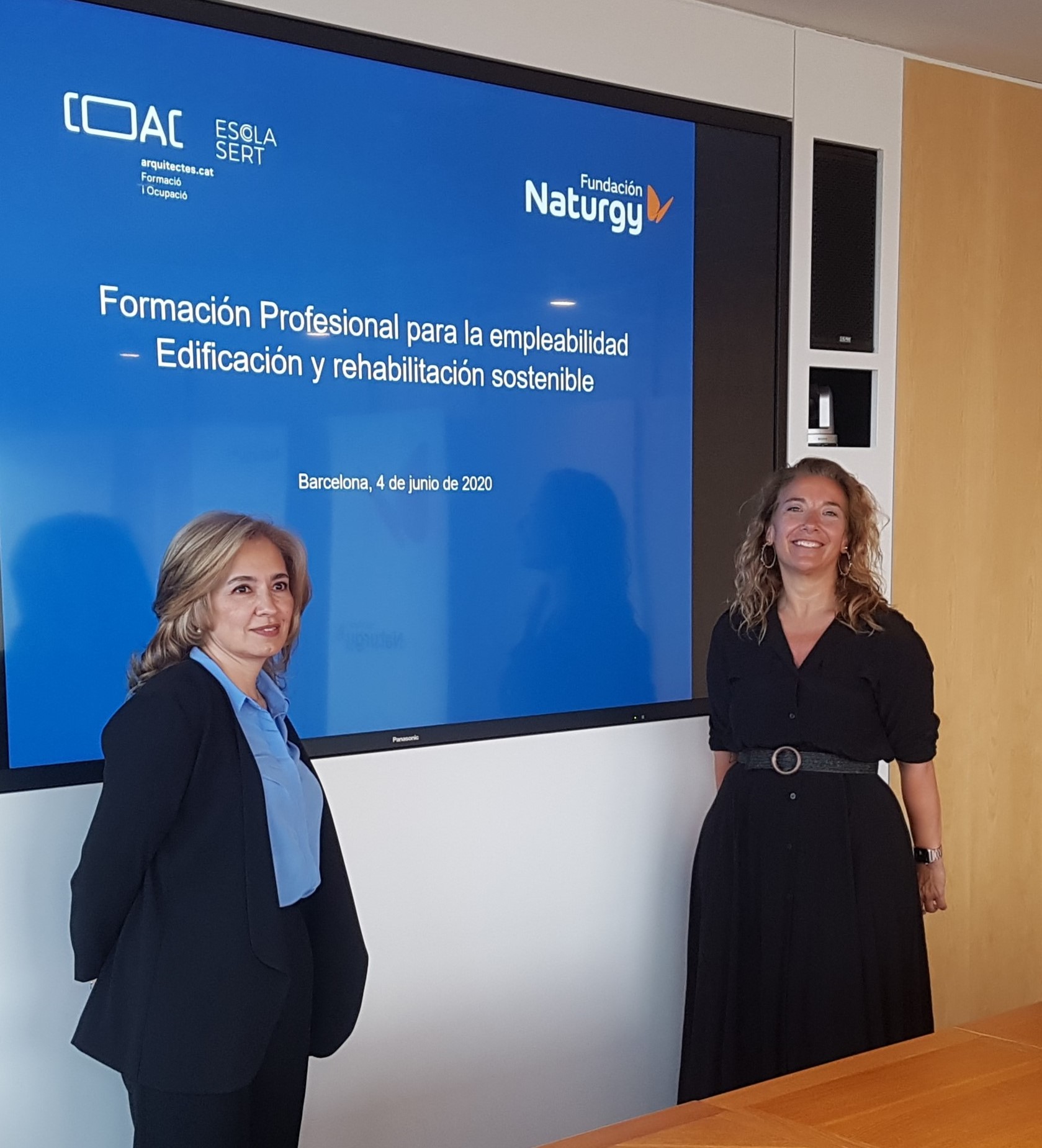Over 2,400 students in vocational training will benefit from the Naturgy Foundation’s employability promotion programme on sustainable construction and rehabilitation, renewable gas, vehicular gas and energy vulnerability
The courses will be carried out in collaboration with entities recognised in each sector.
The first training sessions on sustainable construction and rehabilitation will be given by professionals from the Official Association of Architects of Catalonia (COAC).

From July, the Naturgy Foundation will carry out a new programme aimed at promoting employability in the energy sector, with courses aimed at students in vocational training and teachers of the employment courses. The aim is to make the content suitable, so students are better prepared for the job market and better meet the real needs of companies and society.
The courses will be on different specialities connected to the energy transition and efficiency: sustainable construction and rehabilitation, renewable gas, sustainable mobility and energy vulnerability.
In total, 120 teachers from the regions of Madrid, Galicia, Catalonia, Castilla-La Mancha, Valencia, Asturias and Castilla y Leon will attend, meaning over 2,400 students from the different forms of vocational training in these autonomous regions will receive education.
The virtual sessions will be held in July and September, and will combine online education with on-site education as far as possible, taking into account the current public health emergency.
The managing director of the Naturgy Foundation, María Eugenia Coronado, explained that through these teacher training courses, “we combine our responsibility with the new generations, we contribute to developing future professions related to the energy transition and sustainability, and we improve the employability of students in vocational training.”
Sustainable construction and rehabilitation
The first course to be implemented will be the course given together with the l’Escola Sert of the COAC, the vocational school providing specialised education to professionals in the construction world for 25 years. The course will provide very practical training on criteria such as sustainability in construction and rehabilitation. The aim, in line with the European Green Deal and the Integrated National Energy and Climate Plan of Spain, is to promote the efficient use of natural resources and the circular economy, ensuring that the buildings meet 5 criteria: sustainable, smart, safe, healthy and social.
Energy vulnerability
In the field of vulnerability and express rehabilitation, the Naturgy Foundation's Energy School will also give a course which will enable future technicians in the social sector to incorporate this content. The purpose of this training session is to identify and work with vulnerable groups, and provide tools to propose basic express rehabilitation works in vulnerable homes. This type of rehabilitation is one of the foundation’s lines of social action which contributes to alleviating energy vulnerability by acting on one of its structural causes, as recognised in the National Strategy to tackle Energy Poverty approved by the Spanish government.
Renewable gas
The course on renewable gas aims to provide a solid knowledge base on this new energy vector, which is destined to be an active agent as a renewable energy source in achieving the decarbonisation targets by 2050, supporting effective waste management and contributing to the circular economy.
The content will cover technical, regulatory and economic aspects, as well as its applications and waste management, in order to provide 360 education on a sector with a long history in Spain and in Europe.
Vehicularnatural gas
Vehicular natural gas (VNG) is a modern and efficient technology and a sustainable alternative to contributing to improving air quality in urban environments. Its use contributes to reducing nitrogen oxide emissions by 85% and suspended particles by 95%, which are the main agents of urban pollution.
The course explains this technology in detail, as well as how the gas vehicles work, how to load and unload fuel, and the related regulations.
Last year, the Foundation performed this training on VNG for 40 teachers, which meant over 600 students left this course with up-to-date knowledge on this matter.
Share